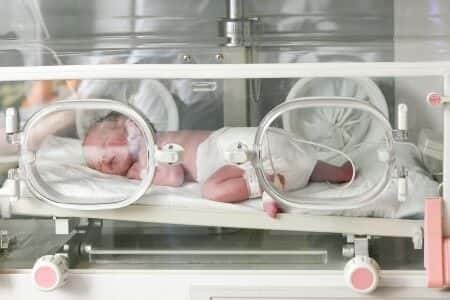Twins Suffer Permanent Brain Damage During Delivery
Updated on
Case Overview
This case involves a mother in her early thirties who was pregnant with her second child. Very early on in her pregnancy, it was discovered that she was carrying twins. Her pregnancy proceeded with no complications until the end of her second trimester, where she began having contractions. Despite multiple visits to the hospital complaining of her contractions, the patient was not admitted. Eventually, the hospital admitted the patient when delivery was imminent. Once admitted, the patient was kept in a standard hospital room and, despite her premature status, was not transferred to a hospital that was better equipped to deal with a complicated delivery. The babies were delivered after an extended labor with poor APGARS scores, as well as evidence of permanent brain damage.
Questions to the Nursing expert and their responses
Given the high risk nature of the patients pregnancy, should she have been transferred to a better equipped facility in a more timely fashion?
The management of this patient depends on her stage of labor on presentation the day she delivered. If her delivery was imminent, it may not have been safe for her to be transferred to a higher level of care at that point. Of course, there could have been plenty of other factors leading up to that date, and they may have had other opportunities to ensure a safe maternal transport during her pregnancy.
Do you routinely encounter such high risk pregnancies and if so, what steps must be taken to ensure patient safety?
I currently work in a smaller community hospital and a twin pregnancy would be considered high-risk. It would not be unusual for us to be presented with this scenario. We work closely with the surrounding maternal Level III transfer centers to ensure we have a process in place when these types of patients present for care. It is entirely possible that they could have had the NICU transport team come for the delivery of these very high-risk preterm twins, but they failed to do so. I have acted in the role of preceptor for new nurses many times over my 30-year career and pre-term labor is a topic that is taught informally during their orientation. I have specialty area certifications in Inpatient Obstetrics (since 1994), Fetal Monitoring (since 1997) and Limited Obstetrical Ultrasound. I am also an instructor for the Neonatal Resuscitation Provider program. I have worked in both large hospitals and smaller community hospitals and am familiar with the process of transferring high-risk patients to a higher level of care.
About the expert
This expert has been practicing nursing for 30 years. A Registered Nurse Certified in Inpatient Obstetrics and as a Legal Nurse Consultant, she also holds membership in both the Association of Women's Health, Obstetric and Neonatal Nurses and the American Association of Legal Nurse Consultants. Currently, this expert is a Charge Nurse in the Women's Services department of a major medical center, where she provides care to high- and low-risk obstetrical and postpartum patients, newborns, pre- and post-operative gynecologic patients, as well as general medical/surgical patients. She is also the President of a medical consulting services firm, where she works with attorneys and screens cases for merits, identifies deviations from recognized standards, and assists with the preparation of interrogatories, among other duties.

E-007552
Specialties:
About the author
Joseph O'Neill
Joe has extensive experience in online journalism and technical writing across a range of legal topics, including personal injury, meidcal malpractice, mass torts, consumer litigation, commercial litigation, and more. Joe spent close to six years working at Expert Institute, finishing up his role here as Director of Marketing. He has considerable knowledge across an array of legal topics pertaining to expert witnesses. Currently, Joe servces as Owner and Demand Generation Consultant at LightSail Consulting.
Subscribe to our newsletter
Join our newsletter to stay up to date on legal news, insights and product updates from Expert Institute.
Sign up nowFind an expert witness near you
What State is your case in?
Subscribe to our newsletter
Join our newsletter to stay up to date on legal news, insights and product updates from Expert Institute.



